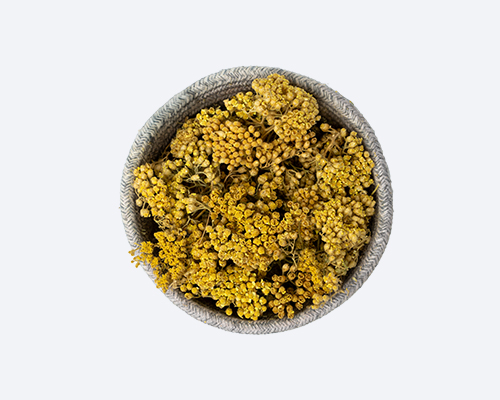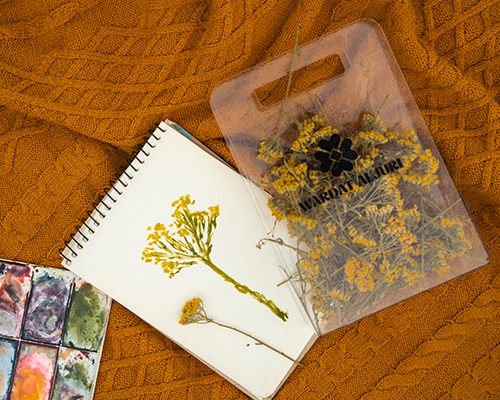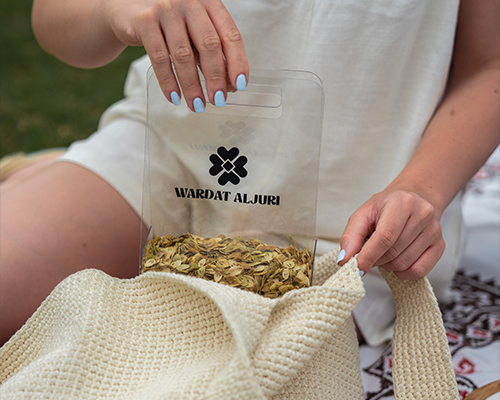Achillea millefolium, commonly known as yarrow, is a perennial herbaceous plant belonging to the Asteraceae family. Its scientific name, Achillea millefolium, is derived from the Greek hero Achilles, who is said to have used the plant to heal his soldiers’ wounds during battle, and “millefolium,” meaning “thousand leaves,” referring to its feathery, finely divided foliage. Yarrow is not typically sold under a specific brand name but is commonly labeled as “yarrow extract” or “yarrow essential oil” in various herbal and cosmetic products.
Yarrow has a long history of use in traditional medicine for its anti-inflammatory, antiseptic, and astringent properties. It has been used to treat wounds, stop bleeding, and reduce inflammation. In modern herbal medicine, yarrow is used to treat conditions such as digestive disorders, colds, fevers, and menstrual cramps. The plant contains compounds like flavonoids and alkaloids, which are believed to contribute to its healing properties. In skincare, yarrow extract is valued for its ability to soothe irritated skin, making it a popular ingredient in natural beauty products such as creams, lotions, and toners. Yarrow essential oil is also used in aromatherapy for its calming effects, helping to alleviate anxiety and stress.

In terms of industry sector applications, yarrow is utilized in several areas. In the pharmaceutical sector, it is included in natural supplements and herbal remedies for various ailments. The cosmetic industry incorporates yarrow in skincare products due to its anti-inflammatory and healing properties. Agriculture also benefits from yarrow, particularly in organic farming, where it is planted to attract beneficial insects and improve soil health through composting. Its use in agriculture as a natural pest repellent and bio-stimulant highlights its importance in sustainable farming practices.
The plant is native to the temperate regions of the Northern Hemisphere, including Europe, Asia, and North America. It grows widely in meadows, grasslands, and along roadsides. Though originally native to these regions, yarrow has been naturalized in many parts of the world due to its hardiness and adaptability. Today, it is cultivated globally for its medicinal, cosmetic, and agricultural uses, making it a versatile plant with wide-reaching applications.





